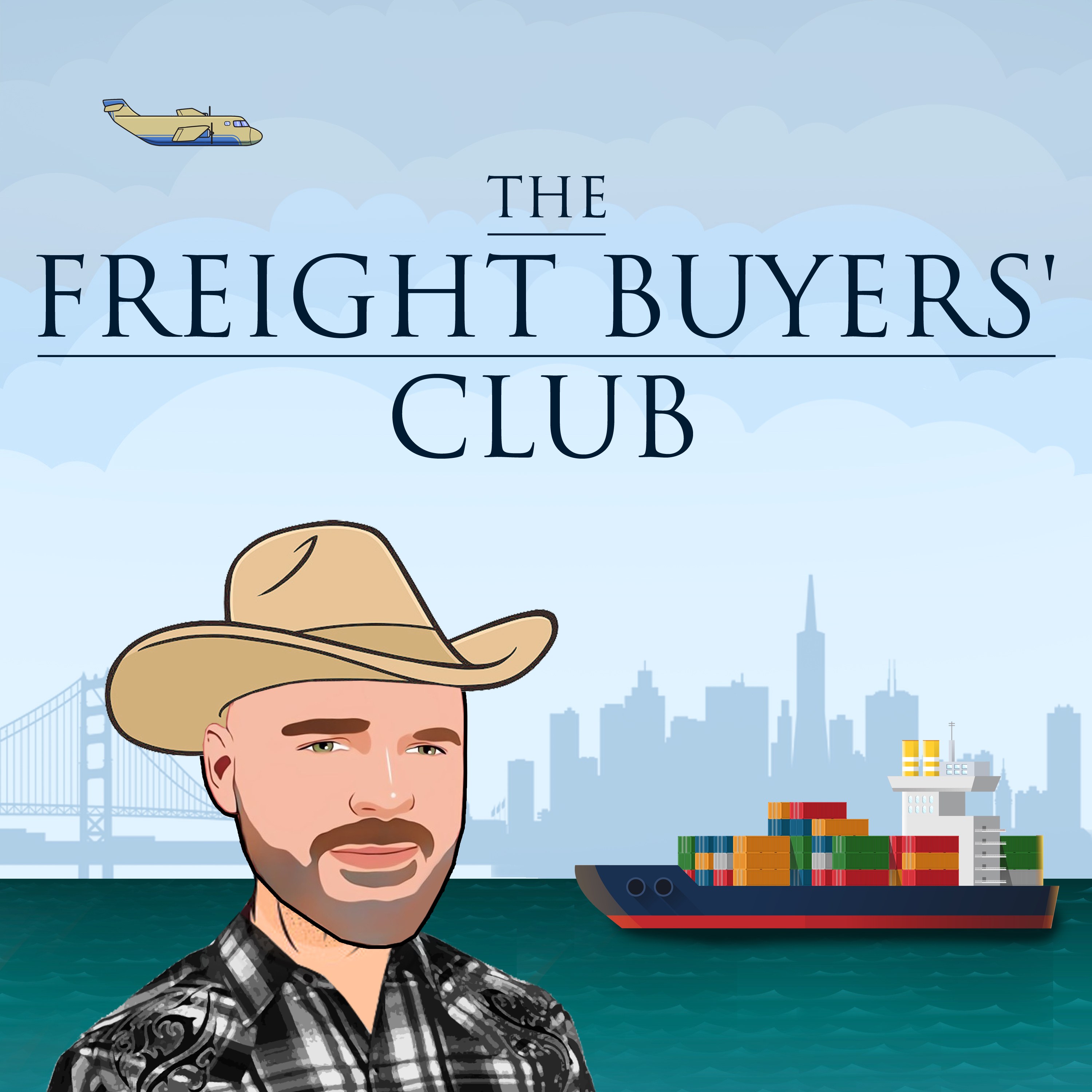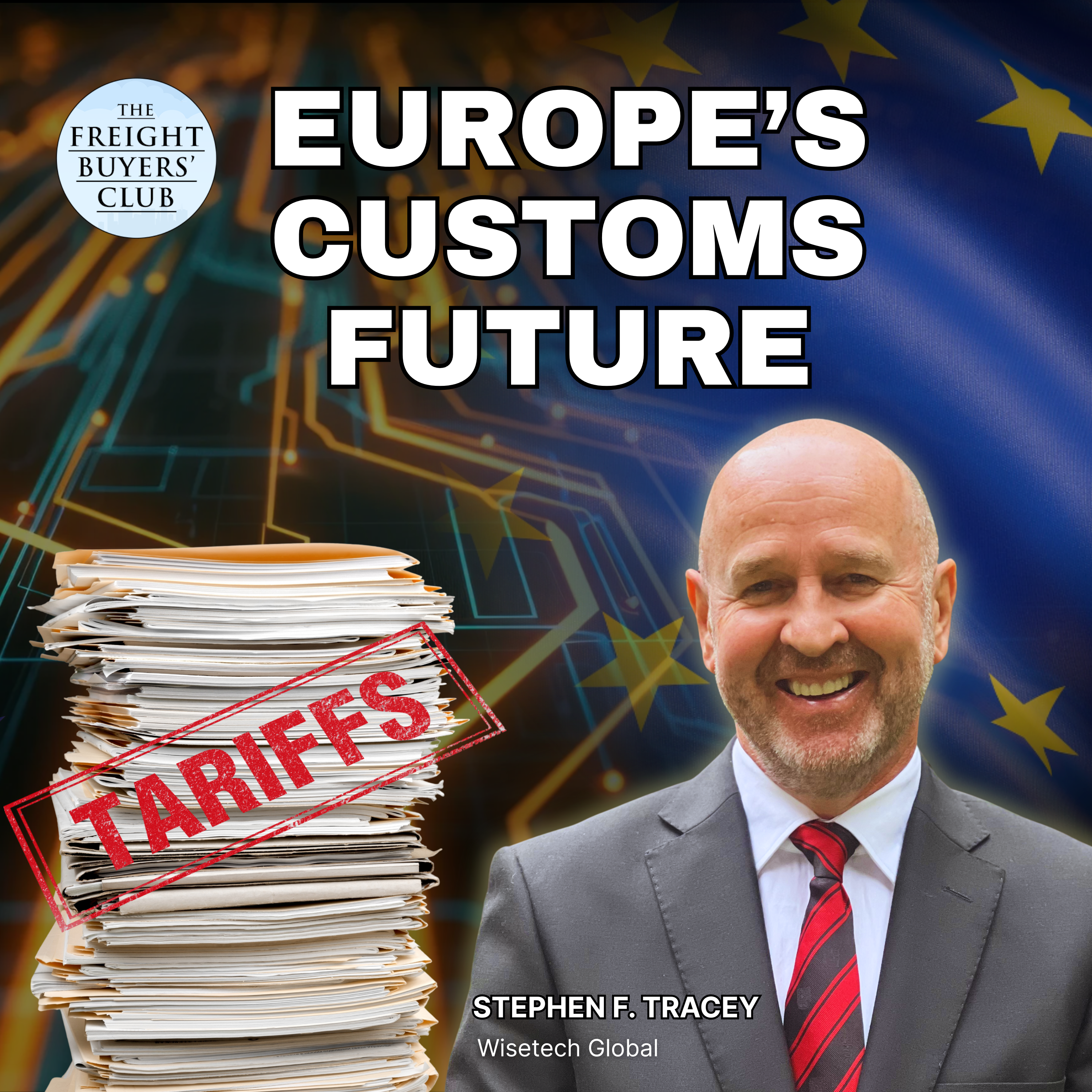Episode Transcript
[00:00:02] Speaker A: Welcome to the Freight Buyers Club and I'm delighted to say I'm joined today here in Dubai by John Pearson, who's the CEO of DHL Express. Welcome, John.
[00:00:10] Speaker B: Thank you and happy to be talking to you again.
[00:00:13] Speaker A: Thanks a lot. We're here in Dubai where you guys have going to spend 500 million euros investment in Dubai and the Kingdom of Saudi Arabia. But before we come to that, you were in this presentation that you've just given, you're very optimistic about amid all of this protectionism about the benefits of free trade and you see a lot of positives out there in terms of some of the bilateral deals that countries are looking at or are doing. Can you just flesh that out a little bit for us?
[00:00:42] Speaker B: Well, to look ahead on the prospects for world trade, I think you have to look back 20 or 30 years as well. And globalization and global trade has performed well, is performed well through many interruptions and many setbacks. One of them Brexit, one of the pandemic and various other things. And this is just a moment in time, you know, with the current US administration. And whilst one country appears to be retreating from trade, I can name maybe 219 others that are thinking about how they can find new partners and new countries while salespeople and marketing people are saying how can we find new customers in those new countries? So there's more activity going on now in terms of embracing trade outside of the main US discussion that we're all very familiar with. So, you know, my comment is really on the midterm and the long term. But even now, one month in, I can find lanes that have grown by, you know, the same sort of percentages as the US lane, a larger lane, admitt has dropped by. And it's on that basis that I have a positive mid and long term outlook on global trade because of the history of it all and because of the sheer level of activity that countries and trade ministers and trade policymakers and senior business people are traveling the region talking about this topic.
[00:02:05] Speaker A: And presumably your investment here in the Middle east ties into your optimism around certain trade lanes. Can you tell us a little bit more about that investment and how that fits into your overall global network across the different division?
[00:02:18] Speaker B: Well, the Middle east is a great trading hub between Asia, Europe and Africa and quite honestly the world. But you know, it triangulates with Europe in the north, Africa in the west and Asia in the East. And the investments we're revealing today have been preconceived, quite honestly a year or two or three ago. So they have nothing to do with the situation that happened on May 1st. But I'm very pleased given that the Middle east growth has actually been accelerating in the near term and the prognosis is that, you know, a 5% growth CAGR is going to happen going forward. Then I'm happy that these facilities are in place and are here because we know that if volumes grow, we're needing to be putting up new BCAs so they won't conceive for this region. But it makes me very pleased and gives me security that our big new facility in Muscat are completely renovated and fit for purpose. Hub and hangar in Bahrain, our likely plot of land on dwc. The new airport will emanate and we'll have a position out there that satisfies the replacement perhaps of what we do down in our other facilities. So we've always got a long term view on this. 100 million in the middle east every single year is meat and potatoes investments. 500 million is the sort of here and now bigger picture cross bu view. And I think we're in great shape to support a region that appears to be in great shape.
[00:03:46] Speaker A: And just to finish John, a two pronged question if I may.
E Commerce has been a great driver of business these last couple of years. Particularly I'm thinking Temu and Shein.
Can you explain how that E commerce market has developed in this area in the Middle East? And the second part of this question is how have you as a company been affected by changes in de minimis regulations in the US and there's talk in Europe of also changing de minimis regulations as well.
[00:04:12] Speaker B: Okay, so the E commerce in the Middle east is very well developed segment and sector intra Middle east where consumption is high and there's a wealth in the region that allows that consumption to be high. Middle east to Europe and other regions. That E commerce platform is in good shape and I think they've invested nicely in E commerce. The impact of de minimis on E Commerce.
Don't forget that de minimis is only China and Hong Kong to the US where the threshold has been removed of 800 is now zero. What does that mean? That means a T shirt or a dress for a prom or a garden hose fitting now has a tariff attached to it of whatever percent may change and that may mean that that item is more expensive than someone would necessarily be wishing to pay. And that is certainly behind the drop in volume from China to the US that we've seen already. We're in a good position or we're in an operationally capable position to pay those duties on behalf of the receiver to pay any formal clearance charges that may accrue to those packages, get the package delivered quickly and make it very clear to what the recipient is due to pay in duties and taxes.
Some goods, apart for a Cannondale mountain bike, apart for a Fender guitar, a high end piece of luxury, will carry the duties quite satisfactorily. And others Things would appear not so economically sensible to ship right now and this is this moment of uncertainty. What's happening with de minimis? I would restate that de minimis is only from China and Hong Kong. Whether that is broadened out to the rest of the world or not, we don't know yet. And whether other regions who have de minimis Europe and UK at 150 and 135 or the other way around.
Canada is 40, Australia is a thousand. There's quite an array of de minimis levels out there and I would be the first to agree that quite a lot of these countries are thinking about their de minimis levels in line with a fairly broader picture of whether it's right to change in a fairly sort of knee jerk way or whether it actually satisfies whether the 40 for Canada and the thousand for Australia is right for their society and their long term plans.
[00:06:36] Speaker A: John Pearson, CEO of DHL Express, thanks for joining me today on Freight Buyers Club.
[00:06:40] Speaker B: Always a pleasure being on Freight Buyers Club.


